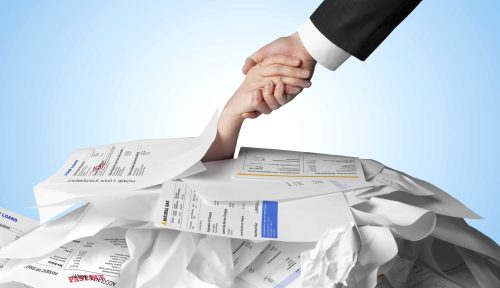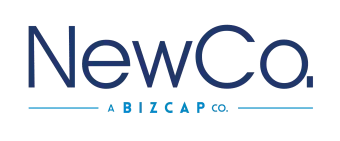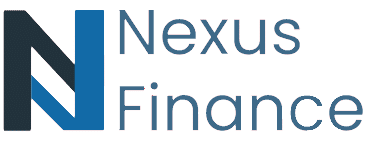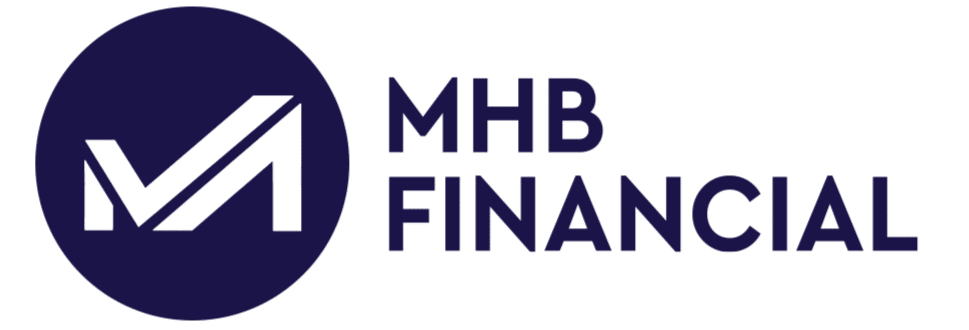Compare Lenders
Discover Popular Financial Services
Bad credit in businesses is a result of previous failures to make payments to creditors on time as agreed upon. These creditors can include banks financial institutions from which a business borrowed loans from, suppliers from where they bought inventory, utility companies which provide water, electricity etc. and/or others. These creditors all report payment histories and patterns to credit bureaus (Equifax, TransUnion, Experian etc.), which then assign the business a credit score between 0 and 100.
When looking for a small-business loan, businesses with poor credit scores have a comparably more difficult task convincing lenders than businesses with good credit.

Why is it hard to get a bad credit business loan for a small business?
When assessing applications for small-business loans, lending companies look at many factors, including the credit score of the business and personal credit score of owner. Credit histories and scores are more than just an indication of the borrower's past repayment patterns. They provide the lender with an idea of the borrower's financial strength and willingness to repay debt. If the credit or personal credit score is below their preferred threshold, that represents an outsized level of risk that they are not always authorized to take. In this scenario, the business owner's loan application may not qualify for approval.
Securing a business loan when your personal credit history also is less than stellar can be a formidable challenge for business owners. When lending institutions evaluate loan applications for small businesses, they scrutinize various factors, with a significant emphasis on both the business's credit score and the personal credit score of the owner. These credit histories and scores serve as more than mere indicators of past repayment patterns; they provide lenders with crucial insights into the financial strength and willingness of the borrower to meet their debt obligations. Unfortunately, if these credit scores fall below the lender's preferred threshold, it signifies a heightened level of risk that financial institutions may not be authorized to undertake.
The personal credit score of an owner plays a pivotal role in the loan application approval process. Lenders view it as an indicator of the individual's financial responsibility and management, which they extrapolate to assess how the business handles its finances. A poor credit score, whether on a personal or business level, raises concerns about the borrower's ability to meet their financial commitments. Lenders are, understandably, cautious about extending loans to businesses that exhibit a history of financial instability or an elevated likelihood of default.
Moreover, the interest rates associated with bad credit business loans are often higher than those offered to borrowers with good credit. This is because lenders compensate for the increased risk they undertake when providing loans and interest rate to businesses with poor credit scores. The higher interest rates can further burden small businesses, potentially affecting their cash flow and overall financial stability.
In light of these challenges, a small business owner with bad credit scores should consider alternative financing options, such as unsecured business loans or merchant cash advances. These solutions may have more flexible approval criteria and can provide the capital needed to sustain and grow a business despite a less-than-ideal credit history. Additionally, crafting a well-thought-out business plan and exploring various lending institutions, including those in Canada, can increase the chances of securing a first unsecured business loan elsewhere, even with bad credit. While obtaining a business loan with bad credit may be challenging, it is not impossible, and with perseverance, financial responsibility, and strategic planning, business owners can work towards improving their credit and accessing better financing opportunities in the future.
How do I get a business loan with bad credit? What are the options?
For small business loans with bad credit history, there are multiple alternative lender options that can be pursued if a bank loan is not a feasible route. Depending on the company's financial profile and whether you are looking for a small business loans, start-up loans, quick loans, microbusiness loans, and/or business acquisition loans, one or more of these options may be the optimal choice forward:
Bad Credit Loans:
Bad credit loans are designed specifically for borrowers with a less-than-stellar credit score or personal credit history. These loans often come with more relaxed credit requirements, making them accessible to small business owners who may not qualify for traditional bank loans. While interest rates may be higher compared to loans for those with better credit, bad credit loans can serve as a lifeline for businesses in need of capital.
Private Loans
While these loans are provided based on credit score and personal guarantee, they are still a viable option for businesses with a poor credit score. In this type of personal loan though, the structure is the same as a conventional term loan from a bank where the cash is advanced to the borrower upfront. However, instead, the repayment for a private loan occurs on a daily basis. This reduced the risk for the lender, meaning that the credit score didn't become as big of a factor in the qualifying decision.
Merchant Cash Advance:
The Merchant Cash Advance is an upfront cash payment advanced by a lender based on the company's card sales volume in lieu of credit scores secured loan amount. With a MCA, the principal loan amount is repaid over time by a fixed percentage of future card sales being remitted directly to the lender in monthly payments.
Business Collateral Loans:
One of the best ways to bypass low credit is to put up a fixed asset as collateral secured to get a business loan made with a lender. Once the asset's valuation is appraised, the lender can then gain additional comfort in the knowledge that in the event of default on secured loan, they can recoup their capital via sale of the asset.
Equity Line of Credit
This is useful if the business in question has a poor credit score, but a lot of equity on its financial statements. Using the business's cash flow and equity as collateral, businesses can obtain a cash advance and pay traditional lender back at regular intervals just like a bank term loan. However, in the event of default, the lender would have a claim on the business's cash flow and can sell it to recoup their capital.
Microbusiness Loans:
Depending on whether your business qualifies as a micro-enterprise, micro lenders (and special microcredit programs from the government) might be available to you as an owner. These loans are smaller and generally have less restrictive requirements to raise the level loan amount of capital needed.
Government Loans Canada Wide:
If your business operates in Canada, it's worth exploring lenders who specialize in providing loans Canada wide. These lenders may have a better understanding of the local business landscape and may offer more tailored loan products to meet the unique needs of Canadian businesses.
In Ontario and across Canada, the Small Business Financing Program (SBFP) is a government-backed entity that shares the risk of loans Canada wide with lenders. While lenders provide and administer the loan, the SBFP steps in and guarantees fixed portions of unpaid debt in the event of default. This helps lenders become more willing to lend to slightly riskier credit candidates.
Unsecured Business Loans:
Unsecured business loans do not require collateral, which can be a boon for small business owners who may not have valuable assets to pledge as security. These unsecured loans are typically based on the creditworthiness of the business and its ability to repay. While interest rates may be somewhat higher, unsecured business loans can provide the necessary funds without putting assets at risk.
When considering business loans, it's essential to understand the distinction between an unsecured loan and secured loans, as they cater to different financial situations. An unsecured loan does not require collateral, making it a boon for business owners who may not have valuable assets to pledge as security. These loans are typically based on the creditworthiness of the business and its ability to repay. While interest rates for an unsecured loan may be somewhat higher due to the increased risk for lenders, they can provide the necessary funds without putting assets at risk. Small businesses that lack significant collateral or wish to avoid risking their assets often opt for unsecured business loans to meet their financial needs while maintaining the security of their valuable property.
On the other hand, secured business loans require borrowers to pledge assets, such as real estate or equipment, as collateral to secure the loan. This collateral serves as a safety net for the lender, reducing their risk, and often results in lower interest rates for the borrower. While secured loans can offer more favourable terms, they also entail the risk of losing the pledged assets in the event of default.
The choice between an unsecured loan and a loan that is secured depends on your specific business circumstances, risk tolerance, and available assets. Both options provide essential funding to support your business's growth and operations, but it's crucial to conduct a thorough assessment.
Alternative Lenders
In certain cases, businesses may need access merchant cash advance or to quick funding, but may not have the minimum credit score requirements to obtain a revolving credit facility from a financial institution. It is here that alternative lending can be an option as it enables businesses to gain cash quickly and with minimal requirements. The downside to this though is that alternative lenders often charge higher rates to compensate themselves for the greater levels of risk that they are undertaking.
While alternative lending options can be a lifeline for businesses with a bad credit history, it's essential to exercise caution and thoroughly evaluate the terms and conditions of any loan offer. Interest rates can vary significantly among lenders, so it's wise to compare multiple options to secure the most favourable rate possible. Additionally, improving your credit rating over time can open doors to more affordable financing opportunities in the future.
Ultimately, even with a less-than-perfect credit score, business owners have access to a range of alternative lending solutions that can provide the financial support needed to grow and sustain their enterprises. By carefully considering these options and crafting a solid business plan, you can navigate the challenges of a bad credit score and work towards a brighter financial future for your business.
To learn more about business financing, government funding and grants in Canada, please check out this guide on the Government of Canada website.
How to rebuild your business credit?
As noted above, poor credit can represent challenges to business financing. However, this doesn't have to be a permanent feature of your own business plan.
With the right strategies and money management practices, bad credit can be reversed. A few key strategies are listed below:

- Make Payments on Time: Timely payments are paramount in repairing poor business credit. Late or missed payments not only negatively impact credit scores but also strain relationships with creditors. Consistently meeting your financial obligations demonstrates fiscal responsibility. In cases where meeting all financial commitments may be challenging, prioritize paying off the largest invoices first. Some credit agencies use a dollar-weighted methodology to calculate credit scores, so addressing substantial debts can have a more significant positive effect.
- Negotiate Better Terms with Creditors: If your business requires a certain level of working capital or faces difficulties in servicing creditor payments on time, consider negotiating longer loan terms with your creditors. This can provide temporary relief, ensuring that your credit score remains stable until your business has the necessary funds to meet its obligations.
- Lower Utilization Rates: If your business utilizes revolving credit facilities or business credit cards, keep a close eye on the utilization rates. High utilization rates over extended periods can increase the perception of riskiness as a credit candidate. Aim to keep these rates low to maintain a positive business credit score.
- Negotiate Payment Terms on Past-Due Accounts: For accounts that have fallen behind schedule, proactive communication with the creditor is essential. Negotiate with them to restructure the debt. While not guaranteed to succeed, such negotiations can provide your business with an opportunity to start afresh with more manageable repayment terms.
- Separate Personal and Business Expenses: Mixing personal and business expenses can complicate creditor repayment and credit rebuilding efforts. To facilitate better financial management, ensure clear separation between personal and business expenditures. This separation simplifies record-keeping and supports more transparent credit management.
- Consider Getting a Business Loan: Surprisingly, obtaining a business loan can be a strategic move for rebuilding business credit, even if your credit history is less than perfect. Securing a business loan that aligns with your cash flow can demonstrate your commitment and ability to repay debts, gradually improving your credit score over time. However, it's crucial to evaluate your business's current financial situation and avoid adding undue leverage. Whenever possible, opt for loans that are secured when seeking to rebuild credit.
Rebuilding your business credit score is essential for accessing better financial opportunities, such as lower interest rates on loans and better terms for future credit. Keep in mind that the specific approach you should take depends on your unique business circumstances, so it's essential to create a solid business plan that outlines your path to your credit rating and recovery. Also, explore various options like unsecured business loans or merchant cash advances, tailored for small businesses with diverse credit profiles. Remember, improving a poor credit score takes time and consistent financial responsibility, but it's an achievable goal that can significantly benefit your business in the long run.
Bad Credit Business Loans FAQ
1) Can you get a small business loan with bad credit?
Yes, it is certainly possible to get a business loan even with a bad credit score, but it will be considerably more challenging.
That said though, it is important to weigh the options listed in this article with the business owner's individual needs and objectives.
2) Are certain industries viewed less favourably in bad credit loan applications?
Yes, industries that have a high capital expenditure requirement and intense competition generally are regarded to be more risky than others.
Bearing this in mind, it could be a good idea to obtain a loan term a MCA instead of a full loan amount.
3) What does a lender want to see before advancing a bad credit loan?
Lenders will certainly want to see the business's registration documentation and the owner's ID.
Depending on the lender and the type of loan, a credit score/history, strategic plan, financial statements, and cash flow projections may also be requested.
4) Are there bad credit business loans with guaranteed approval?
No, there are no bad credit loans that are absolutely guaranteed.
There are some lenders with bad credit loans whom it is rare to not get approved for a bad credit loan. However, the decision to approve a bad credit loan is at the lender's discretion. They may choose to turn you down for one of many reasons.
If you have very bad credit, your best bet is to try to get a loan from a lender that caters to your needs. These lenders usually offer suboptimal rates, but they seldom turn an applicant down. When a borrower has a bad credit score, they are typically required to provide collateral and/or have revenue that meets the lender's expectations.
Explore more
Similar products
- bad credit business loans
- coffee shop business loans
- expansion business loans
- auto shop business loans
- food grocery store business loans
- home business loans
- invoice factoring
- medical dental practice business loans
- mid market financing
- point of sale financing
- restaurant business loans
- salon spa business loans
- business credit lines
- business loan application keep
- clothing store business loans
- business loans usa
- emergency business loans
- gym fitness club business loans
- inventory business loans
- marketing business loans
- merchant cash advance business loans
- ecommerce business loans
- renovation business loans
- retail store business loans
- working capital loans
Why Choose Smarter Loans?

Access to Over 50 Lenders in One Place

Transparency in Rates & Terms

100% Free to Use

Apply Once & Get Multiple Offers

Save Time & Money

Expert Tips and Advice




























